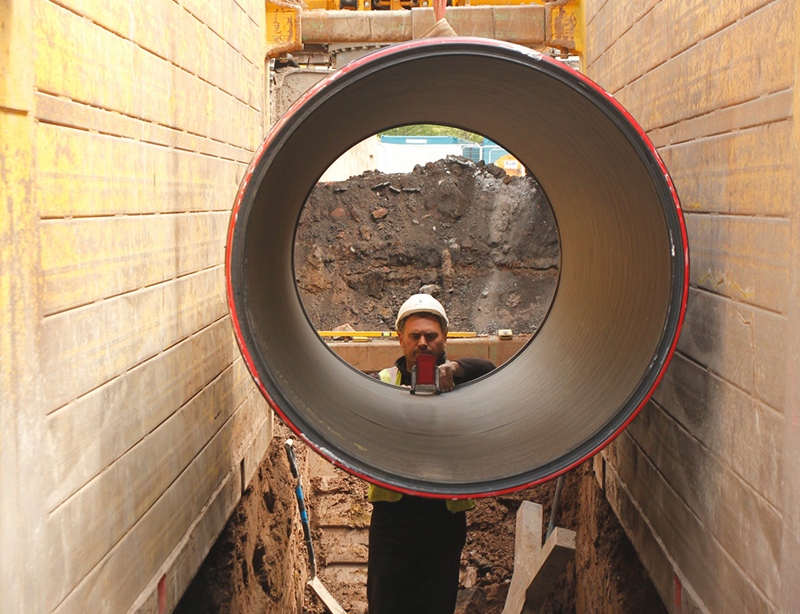
A sustainable drainage strategy, designed to reduce 315 cubic metres of excavation and save around 20 days of construction time, has been utilised at a new housing project in Dalkeith.
Aquaspira was appointed by Cruden Building, which is delivering the 79-home development in Newtongrange. The scheme will provide a mix of two-storey homes and cottage flats, supporting Midlothian Council’s Local Housing Strategy.
Mark Stanway from Aquaspira said, “We were able to rethink the entire approach to construction of the drainage at this site. Seven concrete manholes were originally specified, each requiring a four metre wide excavation. By using a strong, compact steel reinforced push-fit solution we were able to reduce the number of vehicle movements to site by 60%, as well as cutting the amount of bedding and backfill by half.
“Our access units also reduced the installation of each manhole from an average of four days to around an hour, delivering dramatic cost and timing savings to the job, as well as providing a far more environmentally friendly and safer solution.”
Land utilisation was ‘maximised’ by using the ground beneath the estate roads for all the stormwater storage, and a ‘simplified, safer, and accelerated’ strategy used these push-fit, large diameter pipes with access units as an alternative to concrete.
The pipes were installed by GBSS Civils and Plant Hire Ltd. The firm’s Andy Paterson explained, “The 1,800mm and 1,200mm pipes were much easier to handle and install than similar size concrete pipes which, together with the rapid, very simple fitting of the prefabricated Access Units, made a massive difference to the job.”
Lancashire-based Aquaspira said it is on a mission to deliver low carbon construction solutions. The firm has invested in research and development which has seen the use of recycled materials in its products increased, as well as using solar power in the manufacturing process.
The company is working with the University of Birmingham to develop a digital twin to improve design and investigate the use of recycled materials for backfill to further reduce carbon usage in the construction sector and use sensors in pipes for long-term monitoring and maintenance.








